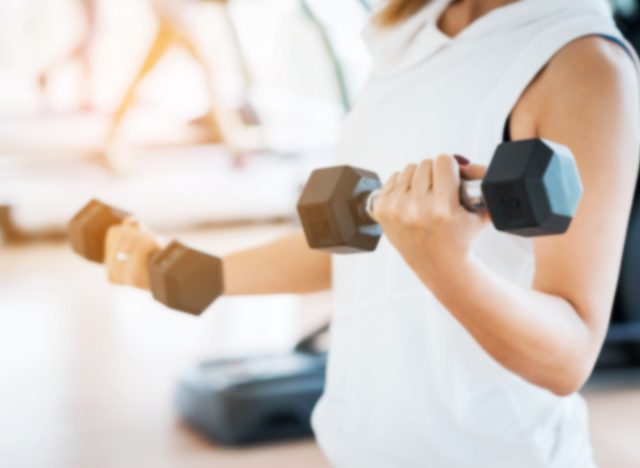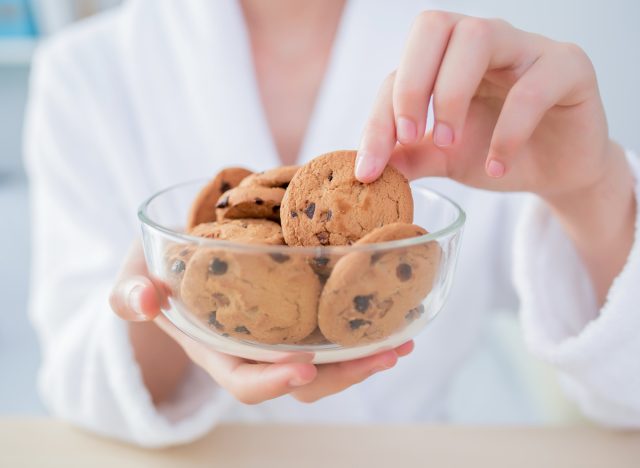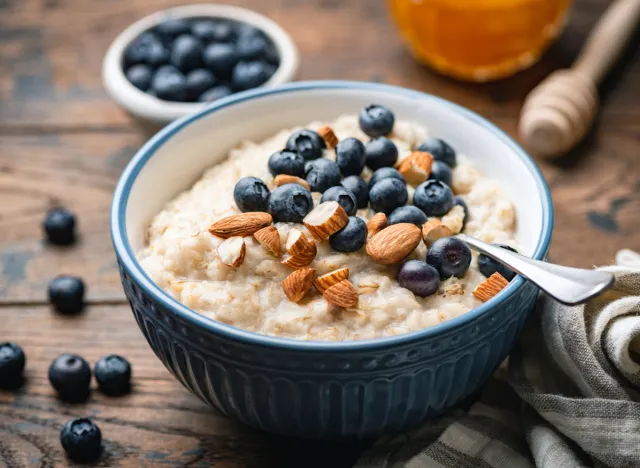
Attempting to lose weight is never easy. And it's notoriously difficult the older you are. For people 50 years old and above, it can present unique challenges compared to younger people attempting to lose weight.
"Losing weight after 50 becomes more difficult because as we get older, metabolic rate slows down due to muscle loss," says Lori Chong, RDN, LD, a registered dietitian at The Ohio State University Wexner Medical Center. "Having more muscle increases metabolic rate; less muscle mass decreases metabolic rate." She notes that for women, losing weight after 50 can also be difficult due to hormonal changes that occur before and after menopause.
"In addition, this is a time of life in which we can be very busy with families, work, and aging parents," she says. "All of these things combined can lead to stress and poor sleep, which can lead to higher insulin levels (promoting fat storage) and cravings for quick energy sources (ie, high fat, high sugar foods)."
It also snowballs into more unhealthy habits, since these time demands often mean those over 50 are time-crunched, which means that exercise habits may also slide, as well as more restaurant meals, which are often higher in calories than home-cooked meals. If you're struggling to lose weight over 50, here are seven tips that will help you lose some pounds and shrink your waist. Read on, and for more on how to eat healthy, don't miss Eating Habits to Lose Abdominal Fat As You Age, Say Dietitians.
Start doing strength training.

"You can engage in strength training with bodyweight exercises, resistance bands, or weights," says Chong. "This helps minimize muscle loss and therefore minimizes that metabolic drop." According to the American Heart Association, adults should strength train at least twice a week.
Drink more water.

"Water helps everything from your skin to helping food sail smoothly through your system," says Bonnie Taub-Dix, RDN, registered dietitian nutritionist and author of Read It Before You Eat It – Taking You from Label to Table. "Although it's said that you need 8 glasses of water a day, each of us has different needs and your fluid needs may also depend on the weather (we need more in hot temperatures) and on your level of activity (if you sweat a lot you need more water). Watery foods like soup, fruit and veggies also help you feel full with very little calories."
With that in mind, according to the Mayo Clinic, men should drink about 15.5 cups (3.7 liters) of fluids a day, and women should drink about 11.5 cups per day.
Don't skimp on cardio.

Keeping up with cardio exercises doesn't just keep your heart in shape, it can also help keep your metabolism burning as you age. "Cardiovascular exercise improves metabolism for a time after your exercise session," says Chong. "How long this increase occurs can vary from a few hours to a few days, but generally the time is longer for more intense workouts." According to the American Heart Association, adults should do cardio training at 150 minutes per week.
Reduce added sugar.

Eating sweets too frequently can pack on pounds because "added sugar gives you extra calories, but no nutrients," says Chong. "Most of us enjoy a sweet indulgence, but it is way too easy to go overboard. A good daily limit for added sugar is 25 grams per day for 2,000 calories."
Practice mindful eating.

"Paying attention to your hunger and fullness cues could not only help with your weight, but more importantly, it could help you become more aware of your physical and emotional need for food, and in the long run, that could help you maintain the weight you lost," says Taub-Dix. "Eating more mindfully also helps you enjoy meals with guilt as a side dish." Plus, tuning into your hunger cues has been studied to be an important tool to help people lose weight.
Avoid all sugary drinks.

"In our quest to limit added sugar, avoiding drinks made with sugar is a great place to start," says Chong. "Sugar in liquid form is rapidly absorbed, causing a significant spike in insulin to keep blood sugar stable. When insulin is high, our bodies store fat rather than using it for energy."
Increase fiber intake.

Eating more satiating foods can help us feel full for longer, which can prevent binges of unhealthy, high-calorie foods down the line. "Fiber comes from unprocessed whole plant foods: beans, lentils, fruit, vegetables, whole grains, nuts, and seeds. A high-fiber food will keep us full longer than one that provides no fiber," says Chong. "Chewing these whole plant foods takes longer than eating processed foods. This extra time allows our brain to recognize feelings of fullness before we have overeaten."









